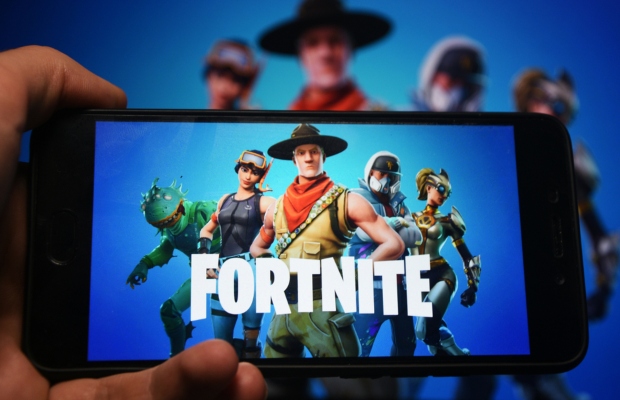
The company behind "Fortnite" is suing a US comedian and actor, rebuffing his claims that the game infringed his copyright for a ‘dancing pumpkin man’ character.
In the suit, filed on Friday, December 6 at a New York district court, Epic Games claimed that the Halloween-themed ‘Pump It Up’ emote, featured in "Fortnite", was covered by a licence.
‘Emotes’ are dances performed by players’ characters. Since "Fortnite" was released in 2017, Epic Games has been fighting off copyright infringement suits from actors, musicians and media personalities claiming that their signature dance moves had been misappropriated as in-game ‘emotes’.
Alfonso Ribeiro, who played the role of Carlton Banks in 1990s US sitcom “The Fresh Prince of Bel-Air”, unsuccessfully sued Epic Games over the ‘So Fresh’ emote, which he said was lifted from his character.
This time, Epic has gone on the offensive and sued comedian and musician Matt Geiler, who is attempting to assert copyright and trademark claims over an in-game emote released one day ahead of Halloween this year.
In its complaint, filed at the US District Court for the Southern District of New York, Epic is seeking a court declaration that it has not infringed Geiler’s IP.
Epic said that Geiler was attempting to assert copyright over a 2006 video featuring him dancing to a song from the “Ghostbusters” soundtrack while dressed with a jack-o’-lantern head.
The video was posted on the YouTube account of local Omaha television station KXVO, where Geiler was a news anchor at the time.
According to the complaint, Geiler sent a cease-and-desist letter to Epic over the ‘Pump It Up’ emote, which Geiler said used his character’s likeness.
The emote sees a players’ character perform a dance to a Halloween-themed song while the character’s head transforms into a jack-o’-lantern.
In response to previous claims of copyright infringement over “Fortnite” emotes, Epic has argued that “no one can own a dance move”.
Epic said that, in this case, it was not the dance moves that were at issue in the suit, but the character’s likeness and appearance.
According to Epic, Geiler’s company Sick Picnic Media agreed to license the “audio-visual work” for use in "Fortnite".
The existence of the licence was supposedly confirmed by Geiler, who commented on a Facebook post featuring a jack-o’-lantern character, remarking: “Luckily they did a licensing deal with me ahead of time!”.
Despite this licensing agreement, Sick Picnic Media claims that Epic has infringed its copyright for its ‘dancing pumpkin man’ character, the complaint said.
As well as arguing that the emote is covered by a licence, Epic claims that jack-o’-lantern characters are not protectable in the first place.
The video game publisher cited numerous representations of characters with jack-o’-lantern heads in literature and mythology, arguing that there was nothing unique about the concept.
Epic won a reprieve from many of the emote copyright suits earlier this year, after the US Supreme Court ruled that plaintiffs must have registered ownership of copyright with the US Copyright Office before suing for infringement.
Many of the celebrities who claimed their dance moves had been ripped off for the video game had only applied to register the copyright shortly before filing the suits against Epic.
Comment